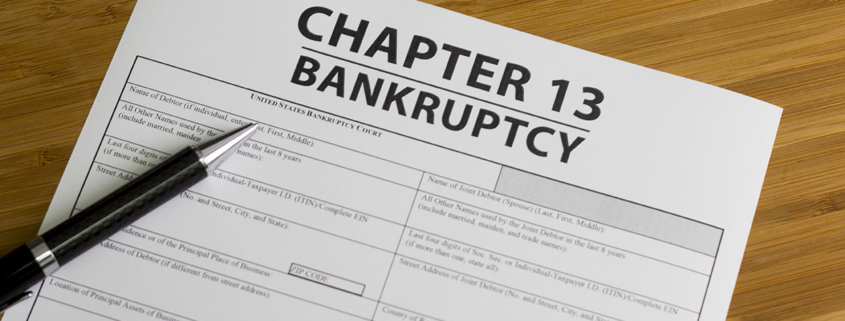DO I HAVE TO INCLUDE ALL MY DEBTS IN CHAPTER 13?
In any type of bankruptcy, a debtor must declare all income, assets and debts. There is no opportunity to hold back a debt. You cannot keep a loan such as a loan from a family member or business partner in an attempt to keep the effects of the bankruptcy away from that creditor.
However, it is important to know that not all debts are the same in a Chapter 13 bankruptcy. Debts will be categorized by the bankruptcy trustee into three categories:
- Priority debts, including debts that cannot be discharged in bankruptcy at all such as back child support and most taxes. These debts must be paid in full over the three- to five-year period of debt repayment that makes up a Chapter 13 bankruptcy debt reorganization plan.
- Secured debts such as car loans and mortgages. These types of loans involve liens placed on the property. Unpaid back car loan payments or mortgage arrearages will be second priority in the debt reorganization.
- Unsecured debts, including credit card debts and medical bills, are at the lowest priority for repayment in a Chapter 13 bankruptcy. In many cases, only a fraction of the total owed is repaid. A cash loan from a family member will usually fall in this category.
Keep in mind that once your debt discharge takes effect at the end of the Chapter 13 bankruptcy repayment period, you will then be free to voluntarily repay any debts that were discharged in part or in whole.
Only three lawyers in Chicago are certified in consumer bankruptcy by the American Board of Certification*. Two are partners at Ledford, Wu & Borges, LLC. We are prepared to advise you and guide you through bankruptcy with your best interests at the forefront.
Concerned About Chapter 13 Bankruptcy? Contact an Experienced Chicago Bankruptcy Attorney at Billbusters, Borges and Wu, LLC.& Borges, LLC
Call or e-mail us to schedule a free initial consultation with a bankruptcy attorney.
*The American Board of Certification is accredited by the American Bar Association and sponsored by the American Bankruptcy Institute and the Commercial Law League of America. Federal law recognizes board certification in bankruptcy. The Supreme Court of Illinois does not recognize certifications of specialties in the practice of law and the certificate, award or recognition is not a requirement to practice law in Illinois.
We are a debt relief agency. We help people file for bankruptcy relief under the Bankruptcy Code.

